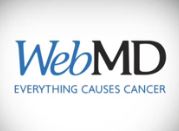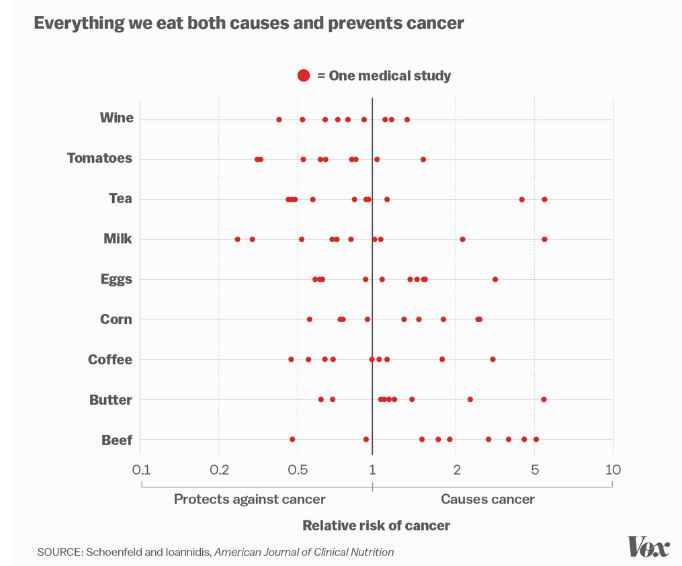Those are clear killers. What about salt, sugar, and meat? Those have not been established as science at all, they are instead examples of correlation. To create correlation is easy, it only requires looking at a group of people, finding what diseases they have, finding what foods they eat, and creating a "statistically significant" link between them.
Epidemiologists will be angered at that simplification - and they should be. I am angry such mockery of science happens every month thanks to Harvard School of Public Health and the NIEHS internal publication Environmental Health Perspectives. I am angry that their manipulation and data dredging invariably makes its way into WebMD.

The reason it is a problem is because the public witnessing butter-is-bad-for-you-until-it-is-good flip-flopping see "epidemiology" and assume disease epidemiologists are the same financially-motivated groups as public health school academics chasing a grant. That has been a disaster for public trust during COVID-19, even as empty store shelves when it came to Clorox and Purell showed trust in science is higher than ever.
That's why you should not believe a prospective cohort that claims "processed" meat is killing you. It isn't. Calories are. It is that simple. As poor nations get wealthier, they eat more meat. They get fatter. And that is a rock-solid absolute risk factor for early mortality, in a way that activists who "suggest" meat, PM2.5, or weedkillers or phytoestrogens can kill you only wish could be true.
It's not that the data are bad, the Prospective Urban Rural Epidemiological (PURE) study began in 2002, has participants across five continents, and will last until 2030. That is as good as it gets for lifestyle surveys. It is just that what it does is limited, and it cannot be used for claims like that one arbitrarily-defined process of one type of food is killing you, because it is still just a food frequency questionnaire.
Food frequency questionnaires are often the bane of the serious epidemiology community because they are so readily abused. Don't like that meat is killing you? Then read an FFQ that shows it is saving you.(1) Just like can be done with any food. Or any chemical. Because all it takes to create statistical significance is enough diseases/benefits and enough foods and if you have those you are statistically guaranteed to get a statistically significant result. It is one of the reasons why I was one of the signatories on the Retire Statistical Significance paper that appeared in Nature. Agenda-driven epidemiologists use statistics the way a drunk uses a lamp-post; for support rather than illumination.
There may even be a secret agenda because this paper is echoing a strange and widely criticized result from a controversial epidemiology group in France, the International Agency for Research on Cancer. Though once prominent, their first director is a hero of mine, beginning in 2009 they began to place anti-science fifth columnists in their working groups. Anyone with any experience working at another group that endorses organic food and hates chemicals, like the US National Institute of Environmental Health Sciences or the Ramazzini Institute, was allowed even if they were actively consulting for an activist group lobbying against the chemical under study or consulting for an attorney, while any epidemiologist with "industry" experience was banned.
It is impossible to know that. Implicit bias studies show that scholars opposed to chemicals and medicine may not even recognize they are prejudiced, or how it impacted their career choices, but what we do know is that this paper does not show what they claim it shows - because food frequency questionnaires can't establish causation. Only press releases can "suggest" they do.
NOTE:
(1)






Comments